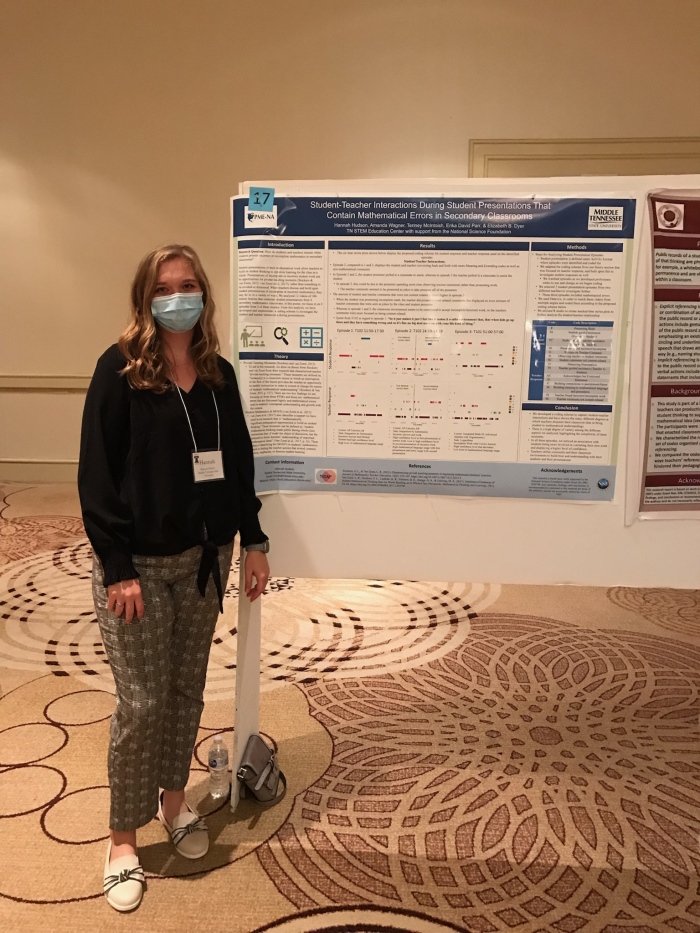SOAR Student Profiles

Hannah Hudson
- SOAR Position: Member; Alumni
- Major: Biochemistry & Psychology
- Faculty Mentor(s): Dr. Tiffany Rogers & Dr. Elizabeth Dyer
Current Focus: The Effects of Intra-Cerebral Infusions of Oxytocin Agonist and Antagonist on Conditioned Place Preference
Project Description
The main goal of this project is to explore the effects of oxytocin activity in the nucleus accumbens (NAc) of mice on social behavior. Specifically, we are looking at how oxytocin can interact with dopamine in the NAc to produce social motivation. Oxytocin is a peripheral hormone and neurotransmitter which modulates social behaviors. The NAc is a brain structure within the mesolimbic dopamine pathway that is associated with reward processing. There are sex-differential effects following peripheral (body) and central (brain) administration. In order to combat these effects, stereotaxic surgeries are performed on male and female mice in order to directly target the NAc. Cannula infusions are then performed to administer oxytocin, oxytocin antagonist, or phosphate-buffered saline (PBS) to this exact location. This is followed up by the social conditioned place preference behavior task which conditions mice to associate different bedding types with social or isolated environments. The behavior is coded utilizing the software Noldus to analyze the effects of oxytocin on social behavior.Why does this topic interest you?
This topic interests me because although oxytocin receptors have been found in the NAc, the role of oxytocin release is still being investigated. The potential for oxytocin to interact with dopamine in the mesolimbic dopamine pathway to impact social motivation for social interactions is also extremely fascinating to me.What are your professional aspirations?
The Social and Affective Neuroscience Laboratory assisted me in discovering my passion for neuroscience where I decided to not only minor in neuroscience but to apply for graduate school in pursuit of a PhD in the field. I want to continue conducting research with a long-term goal of establishing my own laboratory with animal models and becoming a professor.Do you have any advice for future researchers?
I would advise to look into the research that faculty are currently conducting and see if any of them peak your interest. I would also encourage to reach out to faculty mentors even if you have not taken any of their courses. Even if the opportunities available are not exactly the type of research you want to do, you will gain so many amazing skills that you will still be able to apply! This can help you not only become a well-rounded student, but also researcher. Lastly, do not be discouraged if your research is not going as planned. Research is not easy and can definitely become frustrating at times, but it is so important to keep going because it is so rewarding! No matter what field you are considering conducting research in, you will gain so many skills that are very difficult to obtain just from taking courses and can be an extremely enriching experience. Good luck!


